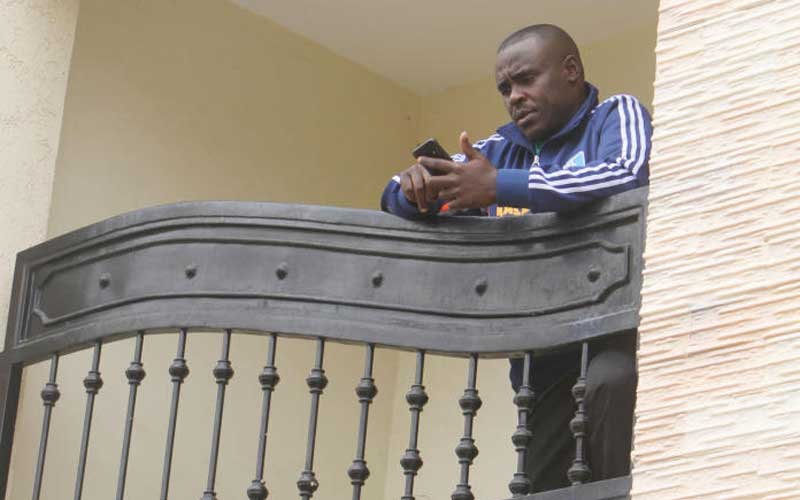×
The Standard e-Paper
Smart Minds Choose Us

Kakamega Senator Cleophas Malala at the balcony of his house in Kitengela, Kajiado County when police went to arrest him, August 17. [Peterson Githaiga, Standard]
As I watched the drama around the arrest of three senators, who are opposed to the new revenue-sharing formula, I could not help but delve deep into their thoughts. In the 1980s, Attorney General Charles Njonjo called seven rebellious MPs who were opposed to policies of the government of the day as the ‘Seven Bearded Sisters’.